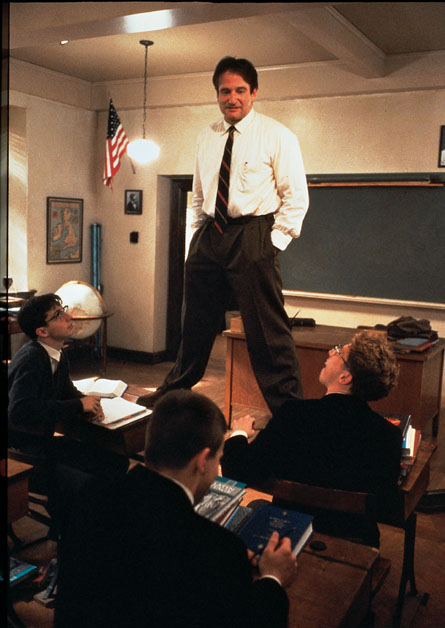TG writes: I listened to the recent webinar and was pretty energized by it. What I found enlightening was how Music was placed at the highest level of education. It makes sense; so many of us strive to include more music of all kinds in our lives.
My question is: Why is poetry listed under rhetoric rather than music? With the rhythm, visual imagery, and ability to reach a soul on the deepest level, it seems to me poetry would be better placed under Music. I realize you may not have the time to respond to this; it was just a thought I had while watching Dead Poets Society with my husband one night.
A:
T, I loved your comment, so I decided to answer it publicly:
In reality, nearly all of the words listed under the 7 parts of the ” ‘Riviums ” could be in more than one. The ancients weren’t as rigidly tied to categorization as most of us moderns.
But poetry is an interesting topic. For example, it clearly fits under rhetoric, the art of persuasion. Persuasive poetry can be extremely influential.
And poetry is easily a part of music, because things like rhythm, rhyme and meter are equally at home in both. Indeed, the sounds of poetry are some of its most powerful elements.
So where Home and Sophocles, for example, are using poetry to persuade, others like Dante and Swift manage to sway through the feelings their poetry incites.
Some, like Virgil and Shakespeare, accomplish both.
Poetry is also found in Mathematics, as pointed out by Brehanan’s classic essay on Poetry and Mathematics, and in the writings of Asimov, C.S. Lewis and T.S. Eliot. Plato manages, amazingly, to have Socrates use rhetoric and poetry in forms that draw from all 7 of the ‘riviums. It’s masterful.
Another way to look at this is to list the Trivium, then the Quadrivium, in order, and consider how each uses poetry to its benefit. This used to be the kind of thing young people did for daily entertainment. In fact, over the generations, we developed a word for it: Education.
 The root word is educare, which means, “to draw out”; and while education is much broader than just poetry, rhetoric, math and the other ‘riviums, it is always lacking and shallow if it doesn’t include at least some kind of creative or independent thinking.
The root word is educare, which means, “to draw out”; and while education is much broader than just poetry, rhetoric, math and the other ‘riviums, it is always lacking and shallow if it doesn’t include at least some kind of creative or independent thinking.
T, you pointed out the idea that poetry might fit better under Music than Rhetoric, and that this came to you while you were watching Dead Poets Society. That’s poignant! Readers who haven’t watched this great movie recently really should! It will bring a lot of profound thoughts.
We need a lot more deep thinking in our society. Some pole call such meandering learning a waste; but it is precisely the type of education that creates the ability — and habit — of thinking deeply in real life.
The wealthy classes stay wealthy because they make certain their children are steeped in such learning. This type of education is befitting all of us, no matter what our station or status in life and society.
Besides — it’s fun!
Carpe Diem!






























I have never gained a love of poetry and this has been something I have wanted to gain ever since first reading A Thomas Jefferson Education several years ago.
I guess I should start with an understanding of what poetry actually is, and what the difference is between poetry and prose.
Thank you for the Q&A. It really helps.